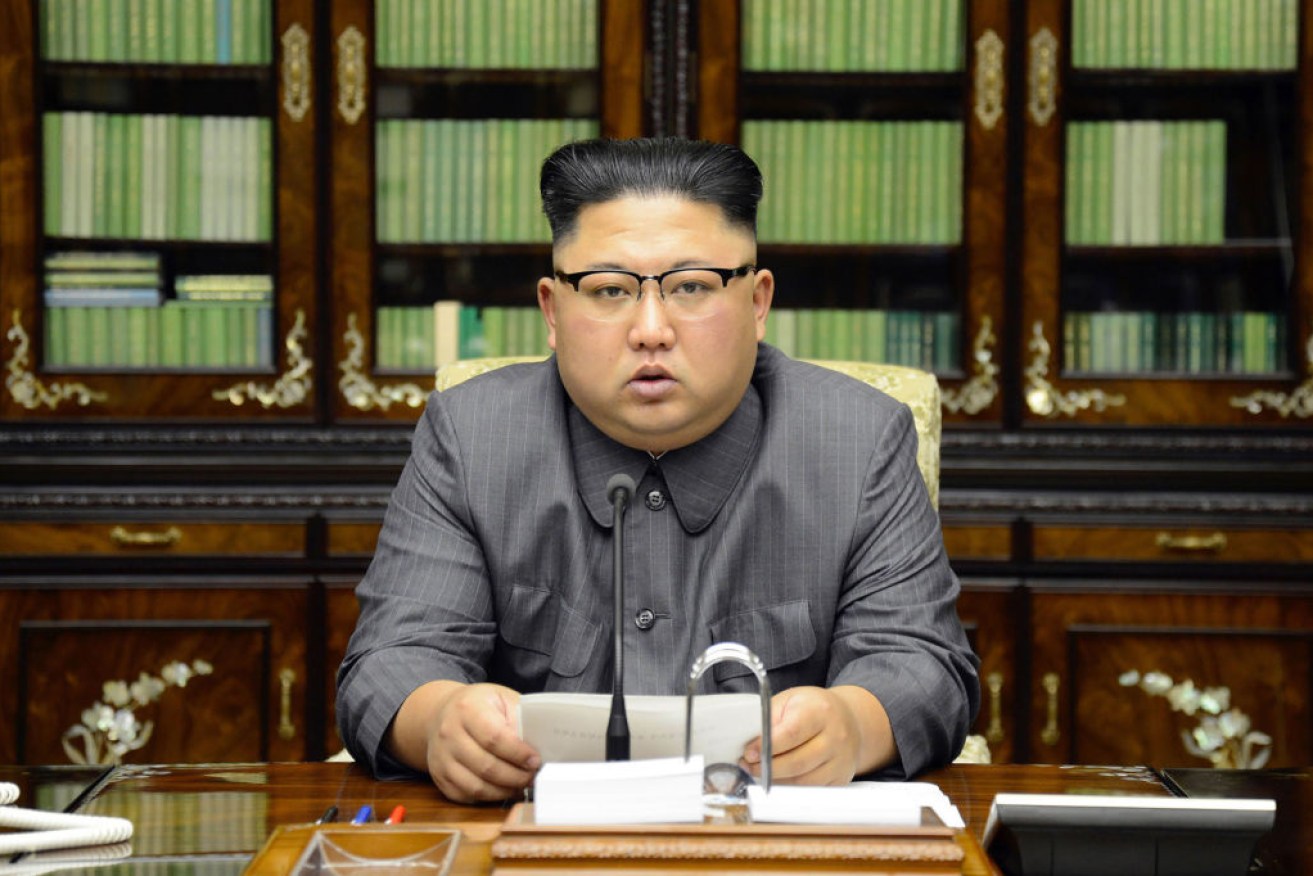North Korea crisis: UN approves tough new sanctions over nuclear program

Nuclear threats between N Korea's Kim Jong-un and US President Donald Trump have been unsettling for the global economic recovery. Photo: KCNA
We are not looking for war” with North Korea, US Ambassador to the UN Nikki Haley said after the UN Security Council unanimously passed new sanctions she said would “starve the regime” into stopping its nuclear program.
New bans on textile exports and overseas workers sending hard currency back to Pyongyang would starve the regime of at least $US1.3 billion in annual revenues – an estimated $US800 million (A$1 billion) and $US500 million (A$6.25 million) respectively, Ms Haley said.
The measures agreed to by the 15-member Security Council also cap crude oil exports at current levels and limit refined petroleum sales to two million barrels annually.
“We are done trying to prod the regime to do the right thing,” Ms Haley said after the vote, which followed Pyongyang’s claim that it had tested a hydrogen bomb on September 3.
The original US proposal for the sanctions would have placed North Korean leader Kim Jong Un on an international blacklist and implemented a full ban on selling oil to his regime.
The UN Security Council unanimously adopted the strongest sanctions ever against North Korea: #15-0 pic.twitter.com/0tNWAZRoSr
— Archive: Ambassador Nikki Haley (@AmbNikkiHaley) September 11, 2017
Ms Haley struck a softer tone Monday than she had last week, when she said Kim Jong Un was “begging for war” and US patience was “not unlimited”.
“We must stop its march towards a nuclear arsenal with the ability to deliver it anywhere in the world,” she said of North Korea. “We must do that by cutting off the fuel and the funding that supports it.”
“We are not looking for war. The North Korean regime has not yet passed the point of no return. If it proves it can live in peace, the world will live in peace with it,” Ms Haley added.
Russia voted in favour of the sanctions, but ambassador Vassily Nebenzia warned that “further restrictions could be tantamount to attempts to suffocate the economy” and hit innocent civilians rather than cutting off funding to Pyongyang’s ballistic missile and nuclear program.
Mr Nebenzia also said it was a “big mistake” to ignore the Russian-Chinese initiative to restart dialogue with Pyongyang.
Beijing and Moscow have called for a freeze-for-freeze agreement with North Korea, which would see the US and South Korea halt military drills on the Korean Peninsula in exchange for Pyongyang stopping its nuclear and ballistic missile program.
Ms Haley last week called the proposal “insulting” and said the US has maintained that North Korea needs to halt their activities before talks can take place.
Monday’s measures come on top of sanctions agreed to by the UN five weeks ago that were expected to cut roughly US$1 billion from the country’s US$3 billion in annual export revenue.
Those measures introduced a complete ban on coal and iron exports, blocked international sales of North Korean lead ore and seafood, and imposed travel bans and asset freezes on individuals and companies.
North Korea’s warning
Pyongyang on Monday warned the US it would pay a “due price” for spearheading efforts for new UN sanctions.
The North’s foreign ministry spokesman said the US was “going frantic” to manipulate the Security Council over Pyongyang’s nuclear test, which it said was part of “legitimate self-defensive measures”.
“In case the US eventually does rig up the illegal and unlawful ‘resolution’ on harsher sanctions, the DPRK (North Korea) shall make absolutely sure that the US pays due price,” the spokesman told the official KCNA news agency.
The North flight-tested its developmental Hwasong-14 ICBMs twice in July and analysis of flight data suggested that the missiles could reach deep into the US mainland when perfected.








